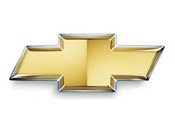Cheaper 2009 Chevrolet Express Cargo Car Insurance Quotes
Sick and tired of paying out the nose each month for car insurance? You are no different than many other consumers.
Insurance companies such as Geico, Farmers Insurance and State Farm promote their brand names with ad campaigns and it is difficult to ignore the flying pigs and cute green geckos and do the work needed to find the best deal.
If you currently have a car insurance policy, you should be able to lower your premiums substantially using these techniques. Buying car insurance is easy if you know what you’re doing. Nevertheless, drivers must comprehend the methods companies use to sell insurance online.
The method we recommend to compare rates is to know the trick most insurance companies pay for the opportunity to compare their rates. To get started, all you need to do is provide a small amount of information like how many miles driven, whether your vehicle is owned or leased, if your license is active, and which vehicles you own. Those rating factors is then submitted to many different companies and they return rate quotes immediately.
To get price quotes for your 2009 Chevy Express Cargo, click here and complete the form.
Tailor your coverage to you
When choosing proper insurance coverage for your vehicles, there really is no cookie cutter policy. Coverage needs to be tailored to your specific needs and your policy should reflect that. These are some specific questions can help discover if you would benefit from professional advice.
- Does car insurance cover theft of personal property?
- Does having multiple vehicles earn me a discount?
- Does my insurance cover damage caused when ticketed for reckless driving?
- What is the ISO rating for a 2009 Chevy Express Cargo?
- Why is insurance for a teen driver so high?
- Can I rate high risk drivers on liability-only vehicles?
- Do I need motorclub coverage?
If it’s difficult to answer those questions but you think they might apply to your situation, you might consider talking to a licensed agent. To find an agent in your area, simply complete this short form or you can also visit this page to select a carrier
The coverage is in the details
Learning about specific coverages of a car insurance policy aids in choosing which coverages you need and the correct deductibles and limits. Policy terminology can be difficult to understand and nobody wants to actually read their policy. Shown next are the usual coverages found on the average car insurance policy.
Collision – Collision coverage pays for damage to your Express Cargo from colliding with another car or object. You will need to pay your deductible and then insurance will cover the remainder.
Collision insurance covers claims such as colliding with a tree, hitting a mailbox, driving through your garage door and rolling your car. Collision coverage makes up a good portion of your premium, so you might think about dropping it from vehicles that are 8 years or older. You can also bump up the deductible to get cheaper collision coverage.
Liability coverage – This can cover damage that occurs to other’s property or people in an accident. This insurance protects YOU against other people’s claims. It does not cover your own vehicle damage or injuries.
It consists of three limits, bodily injury for each person injured, bodily injury for the entire accident and a property damage limit. Your policy might show liability limits of 50/100/50 which stand for $50,000 bodily injury coverage, a per accident bodily injury limit of $100,000, and a total limit of $50,000 for damage to vehicles and property. Another option is a combined limit which provides one coverage limit and claims can be made without the split limit restrictions.
Liability coverage protects against things like medical services, emergency aid and loss of income. How much coverage you buy is a personal decision, but you should buy as much as you can afford.
Coverage for uninsured or underinsured drivers – Uninsured or Underinsured Motorist coverage protects you and your vehicle from other drivers when they are uninsured or don’t have enough coverage. Covered claims include hospital bills for your injuries and damage to your 2009 Chevy Express Cargo.
Since many drivers have only the minimum liability required by law, their liability coverage can quickly be exhausted. This is the reason having UM/UIM coverage is very important. Usually your uninsured/underinsured motorist coverages are similar to your liability insurance amounts.
Comprehensive car insurance – Comprehensive insurance covers damage that is not covered by collision coverage. You need to pay your deductible first then your comprehensive coverage will pay.
Comprehensive coverage pays for things like vandalism, rock chips in glass, fire damage, hitting a bird and damage from a tornado or hurricane. The highest amount you can receive from a comprehensive claim is the cash value of the vehicle, so if it’s not worth much more than your deductible consider removing comprehensive coverage.
Coverage for medical expenses – Personal Injury Protection (PIP) and medical payments coverage pay for bills like nursing services, X-ray expenses and prosthetic devices. They can be utilized in addition to your health insurance policy or if you do not have health coverage. They cover not only the driver but also the vehicle occupants and also covers being hit by a car walking across the street. Personal Injury Protection is only offered in select states and may carry a deductible

